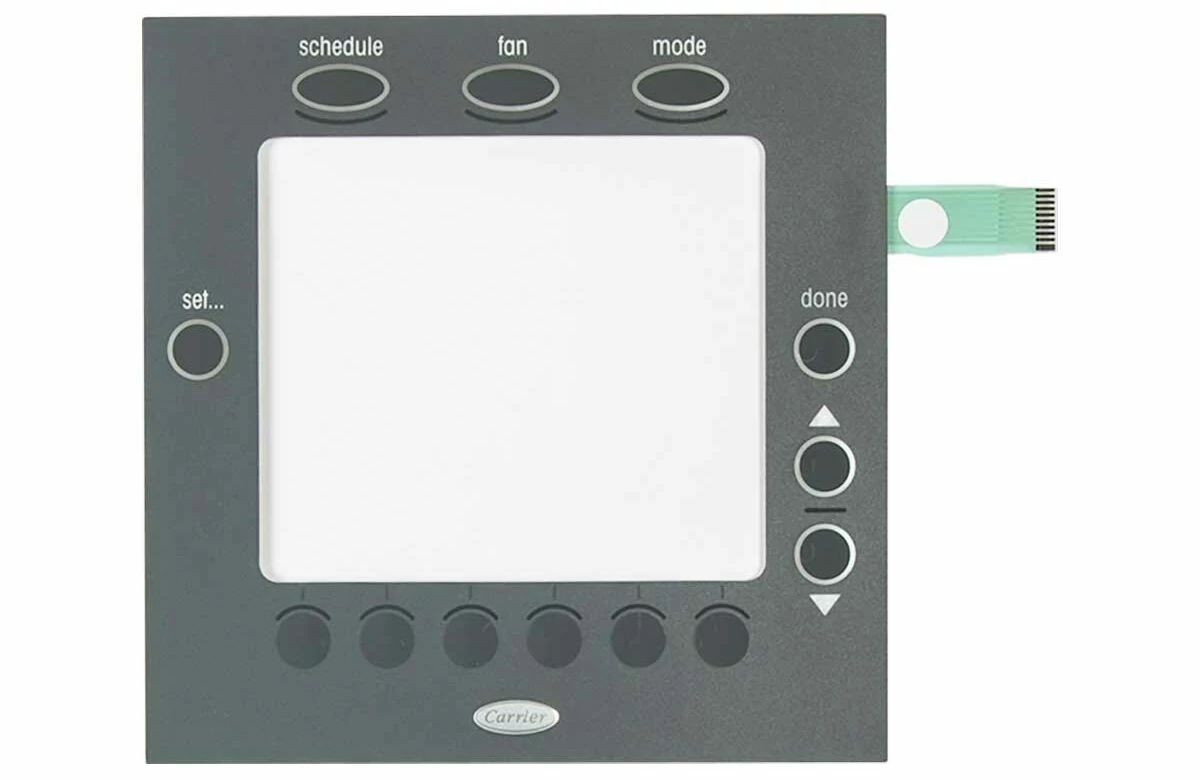How Membrane Switches Are Designed for Easy Maintenance and Repair
How Membrane Switches Are Designed for Easy Maintenance and Repair
Blog Article
Recognizing the Importance of Membrane Switches in Interface
Membrane buttons are integral elements in the style of efficient user interfaces, facilitating not just capability however also improving visual allure and user interaction. As we check out the numerous benefits and future patterns connected with Membrane innovation, it becomes clear that these switches are a lot more than just components; they stand for a merging of innovation and usefulness.
What Are Membrane Buttons?

The spacer layer, which includes sticky residential or commercial properties, enables the splitting up of the circuit layer from the overlay, making sure that the button remains in a non-activated state until pressed. When pressure is put on the overlay, it compresses the spacer layer, linking the void and completing the circuit in the underlying layer. This design not just lowers the physical area needed for standard mechanical switches yet additionally boosts the resilience of the gadget, as Membrane switches are typically resistant to dirt, wetness, and other environmental aspects.
Frequently found in applications varying from consumer electronics to clinical tools, Membrane switches are important to modern-day technology, supplying a easy to use and effective interface that lines up with contemporary style needs.
Benefits of Membrane Buttons
While countless button innovations exist, Membrane Switches deal unique advantages that make them specifically preferable in different applications. One of the key benefits of Membrane switches is their portable style, which enables space-saving applications in gadgets where property is restricted. Their slim profile not just improves aesthetic charm but additionally helps with lightweight building and construction.
Another substantial benefit is their resistance to environmental elements. Membrane buttons are normally secured versus moisture, dust, and impurities, making them suitable for usage sought after settings, such as medical tools and commercial equipment. This toughness expands the life expectancy of the button, lowering maintenance expenses and improving dependability.
Furthermore, Membrane buttons can be personalized to fulfill certain design demands, incorporating special graphics and shades that boost customer communication. Their tactile comments options can additionally be customized to supply a rewarding individual experience. In addition, Membrane switches are economical, specifically in high-volume applications, as they can be generated effectively.
Applications in Different Industries

In the consumer electronics market, Membrane buttons prevail in tools such as microwaves, cleaning machines, and remote controls. Their responsive responses and aesthetic choices boost user experience while giving a smooth, modern look. In addition, automobile manufacturers use Membrane buttons in dashboard controls and infotainment systems, where area is restricted, and customer involvement is essential.
In addition, the industrial field leverages Membrane switches in control panels view it for equipment and devices, enabling intuitive operation in commonly severe atmospheres. Their resistance to chemicals and wetness makes certain durability and dependability in these applications. Generally, the flexibility of Membrane Switches contributes considerably to their widespread usage, making them indispensable in various technological domains.
Design Factors To Consider for Membrane Switches

When creating Membrane buttons, several key factors to consider have to be thought about to ensure ideal performance and individual experience. The option of materials is important; picking durable, high-quality substrates can improve the switch's long life and resistance to environmental factors such as moisture and temperature fluctuations.
Secondly, the design of the graphic overlay should focus on quality and convenience of usage. Symbols and message have to be legible, and the design ought to assist in intuitive communication (membrane switches). Furthermore, responsive feedback is important; integrating a responsive dome or other mechanisms can enhance the individual experience by offering physical confirmation of activation
One more vital aspect is the button's electric important link efficiency. Designers must ensure that the conductive traces are properly developed to minimize resistance and prevent signal disturbance. This includes evaluating the required actuation pressure and making sure compatibility with the electronic elements they will user interface with.

Future Trends in Membrane Technology
As innovation remains to advancement, Membrane switches are positioned to progress substantially, driven by innovations in products and making methods. One arising trend is the consolidation of sophisticated products, such as flexible substratums and conductive inks, which enhance longevity and minimize the general weight of Membrane buttons. These products not just boost the tactile feedback however likewise permit the layout of buttons that can hold up against harsher ecological conditions.
In addition, the assimilation of touch-sensitive modern technologies is changing standard Membrane Switches into even more interactive interface. Capacitive touch sensing units embedded within Membrane switch panels can offer a more responsive and user-friendly customer experience, lining up with the growing need for smooth, contemporary designs in customer electronic devices.
Additionally, advancements in printing strategies, such as digital and 3D printing, enable fast prototyping and customization of Membrane switches. This adaptability allows manufacturers to react more promptly to market needs and customer choices.
Lastly, sustainability is coming to be a considerable focus, with producers checking out green materials and procedures. As these trends unfold, the future of Membrane technology guarantees enhanced capability, visual charm, and environmental duty, solidifying their duty in advanced interface throughout different sectors.
Verdict
Finally, Membrane Switches stand for a crucial element in the design of interface, integrating performance with aesthetic versatility. Their advantages, including longevity and resistance to environmental aspects, make them suitable for diverse applications across numerous markets. Furthermore, thoughtful style factors to consider enhance individual interaction and experience. As innovations in technology continue, the development of Membrane switches is expected to more improve interface, driving technology and boosting usability in a progressively complicated technological landscape.
Membrane switches are integral parts in the design of efficient individual interfaces, facilitating not just performance yet additionally improving visual allure and individual communication.Membrane Switches serve as a vital part in different user interfaces, helping with a smooth communication in between customers and digital devices.While many button innovations exist, Membrane Switches deal her comment is here distinctive benefits that make them particularly desirable in various applications.Moreover, Membrane switches can be customized to meet specific layout demands, incorporating unique graphics and shades that boost customer interaction.In final thought, Membrane Switches represent a vital element in the style of individual interfaces, combining performance with aesthetic adaptability.
Report this page